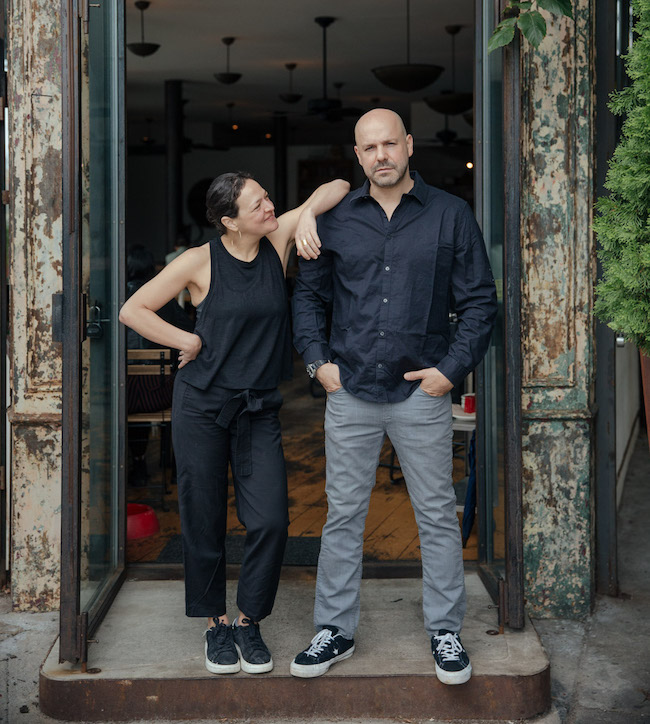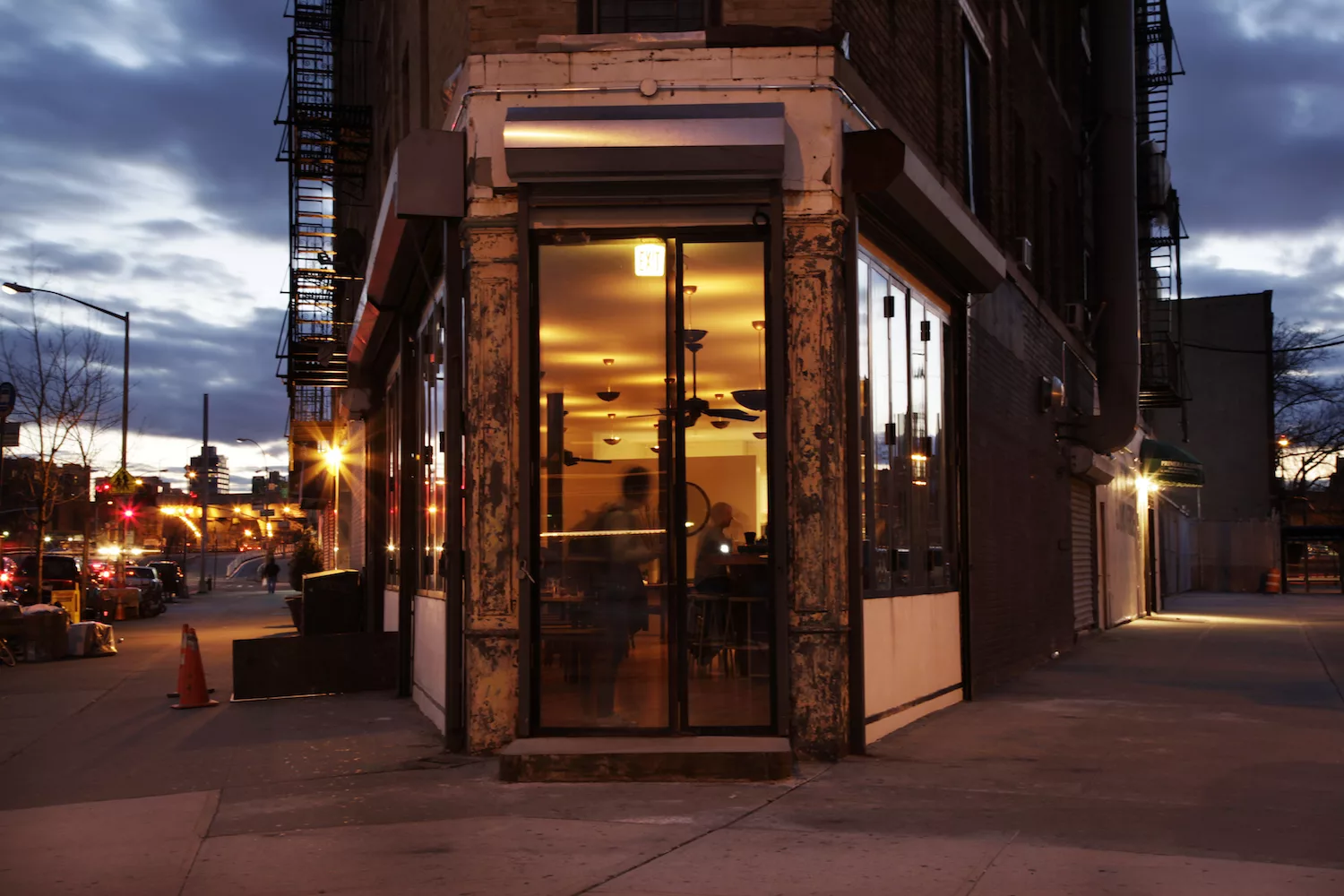Outside of Lighthouse, a small restaurant on a three-sided corner in Williamsburg, Brooklyn, a weathered sandwich board displays a familiar sight: the $1 oyster Happy Hour. While the offer is common in New York City, the final fate of these particular oyster shells is not. Perhaps unconcerned with such things, the stylish crowd inside this warm, wooded Brooklyn bar slurps back their wellfleets and kumamotos, likely more interested in reveling in 2018’s hottest food trend, found in the restaurant’s destination-worthy Israeli fare.
As my dinner date and I finish our oysters, along with the house-made smoked labneh and sourdough with bright tahini, our chatty bartender lets us in on this restaurant’s not-so-secret secret: Lighthouse is about as close to zero waste as a restaurant in New York can get, and it starts with your first course.
“We donate probably a couple of hundred shells a week,” says Ashley Teslik, assistant general manager at Lighthouse. The unlikely end-point for these particular empty oyster shells is the New York Harbor, thanks to the restaurant’s partnership with the reef habilitation program, Billion Oyster Project. The project’s plan is to deposit, as the name suggests, up to 1 billion oysters over 100 acres of reef, in hopes of cleaning the harbor and restoring the area to its former glory. As any reader of Mark Kurlansky will know, New York City was once the oyster capital of the world, a title the Empire State is bereft to have lost, and due to reclaim.
For Lighthouse, the shell donations are only the beginning. The owners, sister and brother Naama and Asaaf Tamir, employ a number of organizations from around the greater New York area to get the restaurant as close to zero-waste as possible, including BK Rot for compost, Common Ground for compost pick-up, and Cork Collective for cork recycling. The duo draws upon their childhood spent working in farms in their native Israel as inspiration for what a truly sustainable farm-to-table restaurant can be. In looking for organizations to partner with here in New York, the Tamirs took a two-prong approach to find the right fit for their needs.

Brother and sister team Naama and Asaaf Tamir, owners of Lighthouse in Brooklyn. (Image: Shawn Hanna)
“In order for us to achieve our goals, we needed to partner up, create systems for ourselves first, but hopefully for everyone eventually,” Naama Tamir says. “Our partners are strategic in that they either provide solutions for challenges or that they are interested in collaborating in researching solutions.” Beyond the restaurant, her environmental aspirations extend into the community.
“We want to make the practice of sustainability easy, inexpensive, and mighty cool; we work with partners that can contribute in at least one of those ways.” Despite their own steadfast dedication, Tamir admits that there were difficulties kickstarting these initiatives, even after finding the right groups as collaborative partners.
“ challenging at first because you have to break old habits and re-educate everyone on the team, from different cultures and languages,” she remembers. “But mostly it’s been very uplifting, and we all pride ourselves in being the forefront of change.”
Guiding the green crusade does have its challenges. Tamir notes a number of resources she wishes were already in play to further move her restaurant, and the rest of the city’s dining industry, toward stress-free sustainability.
“I wish renewable energy was more available that sustainability, healthy eating habits, and mindfulness had a bigger role in our education system,” she notes. Another hurdle is cost. “Because it’s currently more costly to implement these practices, it would be extremely helpful to have financial aid or tax breaks.”
Despite these challenges, the Tamirs have discovered that it’s easier to achieve personal business goals through larger community initiatives. Luckily, there are many national and local resources for finding the right match. Some of these organizations include Green Chamber of Commerce, a national organization, and Acadia Center, which focuses on the Northeast. In New York City, Urban Green Council is the local go-to.
As my dinner date and I move through Lighthouse’s spectacular menu, featuring locally-sourced ingredients, it becomes easy to forget the behind-the-scenes mechanizations working toward a better future and a more environmentally-friendly brand of consumption. In the moment, we are lost in taste. Afterward, as reality returns, I wander home, with my conscience as satiated as my stomach.
Featured image courtesy of Adi Shniderman




